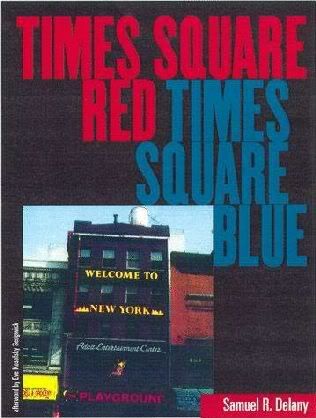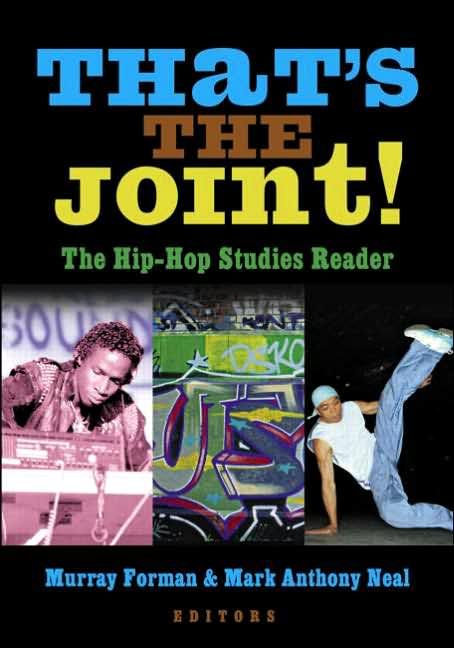Some Academics Have More Fun
Posted in The Gnovis Blog
Academic writing requires a certain level of formality across the board, but I am interested in when and why norms form around certain disciplines that allow for a little more fun. Of course, I know most everyone finds a certain level of pleasure in their disciplinary homes whatever they are, but I offer the following special cases for consideration.
 Hip Hop Studies: I have actually seen this go both ways. Some authors adopt a stoicism that may result from the intense pressures related to the contested academic legitimacy of Hip Hop discourse. Others, however, are among the most fun academic authors to read. A great example is Georgetown’s own Michael Eric Dyson, whose book, Know What I Mean? : Reflections on Hip-Hop, substitutes a track list for the table of contents, opens and closes with thoughts from Jay-Z and Nas, and organizes each chapter around “featured artists” and “samples.”
Hip Hop Studies: I have actually seen this go both ways. Some authors adopt a stoicism that may result from the intense pressures related to the contested academic legitimacy of Hip Hop discourse. Others, however, are among the most fun academic authors to read. A great example is Georgetown’s own Michael Eric Dyson, whose book, Know What I Mean? : Reflections on Hip-Hop, substitutes a track list for the table of contents, opens and closes with thoughts from Jay-Z and Nas, and organizes each chapter around “featured artists” and “samples.”
This field has also inherited a prioritization of accessible language from the long history of African American Studies. Picking up anything by bell hooks or Cornel West, a reader can instantly immerse themselves into even the most complex analysis thanks to their highly skilled use of language. These authors have highlighted the immediate relevance their writing has for the disproportionately socio-economically oppressed Black American population. The potentially wide use of the material, therefore, raises the stakes for readability compared to other fields, ultimately bending the norms of academic discourse, in my opinion, for the better. Today, Hip Hop Studies has added its own flavors, valuing puns, turns of phrase and rhythm of writing among other stylistic elements that ultimately makes for an extremely pleasant learning experience for those at diverse levels of academic achievement.
Fan Studies: The academic space for Fan Studies has recently begun to open up. Increasingly scholars thinking about fans of sports and celebrities are being joined by those concerned with transformative works-centered online media fandom, many of whom are themselves participants. This may partially explain the focus on fun in the writing as internet jargon and fannish narrative tropes become not only acceptable but crucial to the meta-discourse. Though those active in Fan Studies may also experience trepidation over academic peers’ reticence to validate this field, it is clear that aca-fans are being empowered to theorize their own experience and using their own words, which includes a certain level of affect. An essay in the anthology Fan Fiction and Fan Communities in the Age of the Internet comes to my mind entiteled, “My Life is a WIP on my LJ.” Even in the title, author Kristina Busse shows quite a bit of cheek by playfully deploying insider terms, and the content of the essay continues in this vein. It seems appropriate to me that when looking at hobbies, which people undertake primarily for fun, academics should also be allowed a bit of excitement, themselves.
Sexuality & LGBT Studies: One of my personal favorites, Sexuality Studies perhaps could not help but produce enjoyable texts. The field does many of the things one might expect it to, focusing on sex and the irreducible nature of pleasure, and pursuing projects such as the reclaiming of intercourse as something enjoyable in its own right outside of a heterocentric focus on reproductionThis pleasure-centered discourse has also allowed a certain amount of pleasure in the texts including quips and double entendres. I would point interested students to Samuel Delany’s Times Square Red, Times Square Blue, which explores Delaney’s experience of changing spaces of public sex in New York City.

So why should we be concerned about fun in academia? For me, there are two primary reasons, which are really obverse sides of the same point. The first issue is accessibility as foregrounded by African American Studies. Cultural Studies’ general focus on power makes it especially crucial that we as academics be ever mindful of creating margins with our work or we risk deep hypocracy. Making room for a little fun, then, is one way we can reach out to readers who might otherwise feel intimidated or disinterested. Second, I see the incorporation of fun as a way to strategically undermines our position as society’s braintrust, sending a message that while we do concern ourselves with important questions but we do take ourselves so seriously as to consider our work more important than that of other members of society. This might be a hard sell to many of my peers, but I think admitting the pleasure we take in our work is a way to affirm that not everyone needs to be doing what we do and being a carpenter or an attorney, a nurse or a mechanic may offer others equal pleasure which they should pursue.

